- Home
- Harlan Coben
One False Move Page 3
One False Move Read online
Page 3
"That's right."
"Do you know where she lives? A city or state or anything?"
"No idea." She tried hard to sound indifferent.
"You've had no contact with her?"
"Just a couple of letters."
"Any return address?"
Brenda shook her head. "They were postmarked in New York City. That's all I know."
"Would Horace know where she lives?"
"No. He's never so much as spoken her name in the past twenty years."
"At least not to you."
She nodded.
"Maybe the voice on the phone didn't mean your mother," Myron said. "Do you have a stepmother? Did your father remarry or live with someone--"
"No. Since my mother there has been no one."
Silence.
"So why would someone be asking about your mother after twenty years?" Myron asked.
"I don't know."
"Any ideas?"
"None. For twenty years she's been a ghost to me." She pointed up ahead. "Make a left."
"Do you mind if I get a trace put on your phone? In case they call again?"
She shook her head.
He steered the car per her instructions. "Tell me about your relationship with Horace," he said.
"No."
"I'm not asking to be nosy--"
"It's irrelevant, Myron. If I loved him or hated him, you still need to find him."
"You got a restraining order to keep him away from you, right?"
She said nothing for a moment. Then: "Do you remember how he was on the court?"
Myron nodded. "A madman. And maybe the best teacher I ever had."
"And the most intense?"
"Yes," Myron said. "He taught me not to play with so much finesse. That wasn't always an easy lesson."
"Right, and you were just some kid he took a liking to. But imagine being his own child. Now imagine that on-court intensity mixed with his fear that he would lose me. That I would run away and leave him."
"Like your mother."
"Right."
"It would be," Myron said, "stifling."
"Try suffocating," she corrected. "Three weeks ago we were playing a promotional scrimmage at East Orange High School. You know it?"
"Sure."
"A couple of guys in the crowd were getting rowdy. Two high school kids. They were on the basketball team. They were drunk or high, or maybe they were just punks. I don't know. But they started yelling things out at me."
"What kind of things?"
"Graphic and ugly things. About what they'd like to do to me. My father stood up and went after them."
"I can't say I blame him," Myron said.
She shook her head. "Then you're another Neanderthal."
"What?"
"Why would you have gone after them? To defend my honor? I'm a twenty-five-year-old woman. I don't need any of that chivalry crap."
"But--"
"But nothing. This whole thing, your being here--I'm not a radical feminist or anything, but it's a load of sexist bullshit."
"What?"
"If I had a penis between my legs, you wouldn't be here. If my name was Leroy and I got a couple of weird phone calls, you wouldn't be so hot to protect poor little me, would you?"
Myron hesitated a second too long.
"And," she continued, "how many times have you seen me play?"
The change of subject caught him off guard. "What?"
"I was the number one collegiate player three years in a row. My team won two national championships. We were on ESPN all the time, and during the NCAA finals we were on CBS. I went to Reston University, which is only half an hour from where you live. How many of my games did you see?"
Myron opened his mouth, closed it, said, "None."
"Right. Chicks' basketball. It's not worth the time."
"That's not it. I don't watch much sports anymore." He realized how lame he sounded.
She shook her head and grew quiet.
"Brenda--"
"Forget I said anything. It was dumb to raise the subject."
Her tone left little room for follow-up. Myron wanted to defend himself, but he had no idea how. He opted for silence, an option he should probably exercise more often.
"Take your next right," she said.
"So what happened next?" he asked.
She looked at him.
"To the punks who called you names. What happened after your father went after them?"
"The security guards broke it up before anything really happened. They threw the kids out of the gym. Dad too."
"I'm not sure I see the point of this story."
"It's not over yet." Brenda stopped, looked down, summoned up a little something, raised her head again. "Three days later the two boys--Clay Jackson and Arthur Harris--were found on the roof of a tenement building. Someone had tied them up and cut their Achilles tendon in half with pruning shears."
Myron's face lost color. His stomach took a nosedive. "Your father?"
Brenda nodded. "He's been doing stuff like that my whole life. Never this bad. But he's always made people who cross me pay. When I was a little girl with no mother, I almost welcomed the protection. But I'm not a little girl anymore."
Myron absently reached down and touched the back of his ankle. Cut the Achilles tendon in half. With pruning shears. He tried not to look too stunned. "The police must have suspected Horace."
"Yes."
"So how come he wasn't arrested?"
"Not enough evidence."
"Couldn't the victims identify him?"
She turned back to the window. "They're too scared." She pointed to the right. "Park there."
Myron pulled over. People toddled about the street. They stared at him as though they had never seen a white man; in this neighborhood that was entirely possible. Myron tried to look casual. He nodded a polite hello. Some people nodded back. Some didn't.
A yellow car--nay, a speaker on wheels--cruised by, blaring a rap tune. The bass was set so high that Myron felt the vibrations in his chest. He could not make out the lyrics, but they sounded angry. Brenda led him to a stoop. Two men were sprawled on the stairs like war wounded. Brenda stepped over them without a second glance. Myron followed. He suddenly realized that he had never been here before. His relationship with Horace Slaughter had been strictly basketball. They had always hung out on the playground or in a gym or maybe grabbing a pizza after a game. He had never been in Horace's home, and Horace had never been in his.
There was no doorman, of course, no lock or buzzers or any of that. The lighting was bad in the corridor, but not bad enough to conceal the paint flaking off like the walls had psoriasis. Most of the mailboxes were doorless. The air felt like a beaded curtain.
She climbed up the cement stairs. The railing was industrial metal. Myron could hear a man coughing as if he were trying to dislodge a lung. A baby cried. Then another joined in. Brenda stopped on the second floor and turned right. Her keys were already in her hand and at the ready. The door too was made of some sort of reinforced steel. There was a peephole and three bolt locks.
Brenda unlocked the three bolts first. They jerked back noisily, like the prison scene in a movie where the warden yells, "Lockdown!" The door swung open. Myron was hit by two thoughts at exactly the same time. One was how nice Horace's setup was. Whatever was outside this apartment, whatever grime and rot were on the streets or even in his corridor, Horace Slaughter had not allowed to sneak past the steel door. The walls were as white as a hand cream commercial. The floors looked newly buffed. The furniture was a mix of what looked like fixed-up family pieces and newer Ikea acquisitions. It was indeed a comfortable home.
The other thing Myron noticed as soon as the door was open was that someone had trashed the room.
Brenda rushed in. "Dad?"
Myron followed, wishing that he had his gun. This scene called for a gun. He would signal her to be quiet, take it out, have her stand behind him, creep through the apar
tment with her clutching on to his free arm in fear. He would do that gun swing thing into each room, his body crouched and prepared for the worst. But Myron did not regularly carry a gun. It was not that he disliked guns--when in trouble, in fact, he rather enjoyed their company--but a gun is bulky and chafed like a tweed condom. And let's face it, for most prospective clients, a sports agent packing heat does not inspire confidence, and for those it does, well, Myron would rather do without them.
Win, on the other hand, always carried a gun--at least two, actually, not to mention a prodigious potpourri of concealed weaponry. The man was like a walking Israel.
The apartment consisted of three rooms and a kitchen. They hurried through them. Nobody. And no body.
"Anything missing?" Myron asked.
She looked at him, annoyed. "How the hell would I know?"
"I mean, anything noticeable. The TV is here. So is the VCR. I want to know if you think it's a robbery."
She glanced about the living room. "No," she said. "It doesn't look like a robbery."
"Any thoughts on who did this or why?"
Brenda shook her head, her eyes still taking in the mess.
"Did Horace hide money someplace? A cookie jar or under a floorboard or something?"
"No."
They started in Horace's room. Brenda opened up his closet. For a long moment she stood and said nothing.
"Brenda?"
"A lot of his clothes are missing," she said softly. "His suitcase too."
"That's good," Myron said. "It means he probably ran; it makes it less likely that he met up with foul play."
She nodded. "But it's creepy."
"How so?"
"It's just like my mother. I can still remember Dad just standing here, staring at the empty hangers."
They moved back into the living room and then into a small bedroom.
"Your room?" Myron asked.
"I'm not here very much, but yeah, this is my room."
Brenda's eyes immediately fell on a spot near her night table. She gave a little gasp and dived to the floor. Her hands began to paw through her effects.
"Brenda?"
Her pawing grew more intense, her eyes aflame. After a few minutes she got up and ran to her father's room. Then the living room. Myron kept back.
"They're gone," she said.
"What?"
Brenda looked at him. "The letters my mother wrote me. Someone took them."
Myron parked the car in front of Brenda's dorm room. Except for monosyllabic directions, Brenda had not spoken during the drive. Myron did not push it. He stopped the car and turned toward her. She continued to stare ahead.
Reston University was a place of green grass and big oaks and brick buildings and Frisbees and bandannas. Professors still had long hair and unkempt beards and tweed jackets. There was such a feeling of innocence here, of make-believe, of youth, of startling passion. But that was the beauty of such a university: students debating over life-and-death issues in an environment as insulated as Disney World. Reality had nothing to do with the equation. And that was okay. In fact, that was how it should be.
"She just left," Brenda said. "I was five years old, and she just left me alone with him."
Myron let her speak.
"I remember everything about her. The way she looked. The way she smelled. The way she'd come home from her job so tired she could barely put her feet up. I don't think I've talked about her five times in the past twenty years. But I think about her every day. I think about why she gave me up. And I think about why I still miss her."
She put her hand to her chin then and turned away. The car stayed silent.
"You good at this, Myron?" she asked. "At investigating?"
"I think so," he said.
Brenda grabbed the door handle and pulled. "Could you find my mother?"
She did not wait for a response. She hurried out of the car and up the steps. Myron watched her disappear into the colonial brick building. Then he started up the car and headed home.
Myron found a spot on Spring Street right outside Jessica's loft. He still referred to his new dwelling as Jessica's loft, even though he now lived here and paid half the rent. Weird how that worked.
Myron took the stairs to the third floor. He opened the door and immediately heard Jessica yell out, "Working."
He did not hear any clacking on the computer keyboard, but that didn't mean anything. He made his way into the bedroom, closed the door, and checked the answering machine. When Jessica was writing, she never answered the phone.
Myron hit the play button. "Hello, Myron? This is your mother." Like he wouldn't recognize the voice. "God, I hate this machine. Why doesn't she pick up? I know she's there. Is it so hard for a human being to pick up a phone and say hello and take a message? I'm in my office, my phone rings, I pick it up. Even if I'm working. Or I have my secretary take a message. Not a machine. I don't like machines, Myron, you know that." She continued on in a similar vein for some time. Myron longed for the old days when there was a time limit on answering machines. Progress was not always a good thing.
Finally Mom began to wind down. "Just calling to say hello, doll face. We'll talk later."
For the first thirty-plus years of his life, Myron had lived with his parents in the New Jersey suburb of Livingston. As an infant he'd started life in the small nursery upstairs on the left. From the age of three to sixteen, he lived in the bedroom upstairs on the right; from sixteen to just a few months ago, he'd lived in the basement. Not all the time, of course. He went to Duke down in North Carolina for four years, spent summers working basketball camps, stayed on occasion with Jessica or Win in Manhattan. But his true home had always been, well, with Mommy and Daddy--by choice, strangely enough, though some might suggest that serious therapy would unearth deeper motives.
That changed several months ago, when Jessica asked him to move in with her. This was a rarity in their relationship, Jessica making the first move, and Myron had been deliriously happy and heady and scared out of his mind. His trepidation had nothing to do with fear of commitment--that particular phobia plagued Jessica, not him--but there had been rough times in the past, and to put it simply, Myron never wanted to be hurt like that again.
He still saw his folks once a week or so, going out to the house for dinner or having them make the trip into the Big Apple. He also spoke to either his mom or his dad nearly every day. Funny thing is, while they were undoubtedly pests, Myron liked them. Crazy as it might sound, he actually enjoyed spending time with his parents. Uncool? Sure. Hip as a polka accordionist? Totally. But there you go.
He grabbed a Yoo-Hoo from the refrigerator, shook it, popped the top, took a big swig. Sweet nectar. Jessica yelled in, "What are you in the mood for?"
"I don't care."
"You want to go out?"
"Do you mind if we just order in?" he asked.
"Nope." She appeared in the doorway. She wore his oversize Duke sweatshirt and black knit pants. Her hair was pulled back in a ponytail. Several hairs had escaped and fell in front of her face. When she smiled at him, he still felt his pulse quicken.
"Hi," he said. Myron prided himself on his clever opening gambits.
"You want Chinese?" she asked.
"Whatever, sure. Hunan, Szechwan, Cantonese?"
"Szechwan," she said.
"Okay. Szechwan Garden, Szechwan Dragon, or Empire Szechwan?"
She thought a moment. "Dragon was greasy last time. Let's go with Empire."
Jessica crossed the kitchen and kissed him lightly on the cheek. Her hair smelled like wildflowers after a summer storm. Myron gave her a quick hug and grabbed the delivery menu from the cabinet. They figured out what they'd get--the hot and sour soup, one shrimp entree, one vegetable entree--and Myron called it in. The usual language barriers applied--why don't they ever hire a person who speaks English at least to take the phone order?--and after repeating his telephone number six times, he hung up.
"Get much done?" he as
ked.
Jessica nodded. "The first draft will be finished by Christmas."
"I thought the deadline was August."
"Your point being?"
They sat at the kitchen table. The kitchen, living room, dining room, TV room were all one big space. The ceiling was fifteen feet high. Airy. Brick walls with exposed metal beams gave the place a look that was both artsy and railroad station-like. The loft was, in a word, neat-o.
The food arrived. They chatted about their day. Myron told her about Brenda Slaughter. Jessica sat and listened in that way of hers. She was one of those people who had the ability to make any speaker feel like the only person alive. When he finished, she asked a few questions. Then she stood up and poured a glass of water from their Brita pitcher.
She sat back down. "I have to fly out to L.A. on Tuesday," Jessica said.
Myron looked up. "Again?"
She nodded.
"For how long?"
"I don't know. A week or two."
"Weren't you just out there?"
"Yeah, so?"
"For that movie deal, right?"
"Right."
"So why are you going out again?" he asked.
"I got to do some research for this book."
"Couldn't you have done both when you were there last week?"
"No." Jessica looked at him. "Something wrong?"
Myron fiddled with a chopstick. He looked at her, looked away, swallowed, and just said it: "Is this working?"
"What?"
"Our living together."
"Myron, it's just for a couple of weeks. For research."
"And then it's a book tour. Or a writer's retreat. Or a movie deal. Or more research."
"What, you want me to stay home and bake cookies?"
"No."
"Then what's going on here?"
"Nothing," Myron said. Then: "We've been together a long time."
"On and off for ten years," she added. "So?"
He was not sure how to continue. "You like traveling."
"Hell, yes."
"I miss you when you're gone."
"I miss you too," she said. "And I miss you when you go away on business too. But our freedom--that's part of the fun, isn't it? And besides"--she leaned forward a little--"I give great reunion."
He nodded. "You do at that."
She put her hand on his forearm. "I don't want to do any pseudoanalysis, but this move has been a big adjustment for you. I understand that. But so far I think it's working great."
She was, of course, right. They were a modern couple with skyrocketing careers and worlds to conquer. Separation was part of that. Whatever nagging doubts he had were a by-product of his innate pessimism. Things were indeed going so well--Jessica had come back, she had asked him to move in--that he kept waiting for something to go wrong. He had to stop obsessing. Obsession does not seek out problems and correct them; it manufactures them out of nothing, feeds them, makes them stronger.

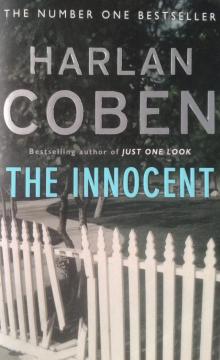 The Innocent
The Innocent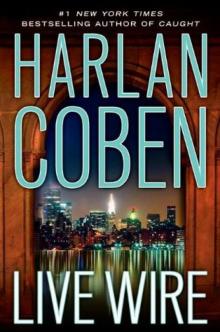 Live Wire
Live Wire Play Dead
Play Dead Drop Shot
Drop Shot Seconds Away
Seconds Away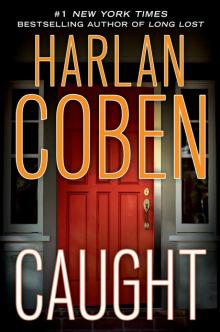 Caught
Caught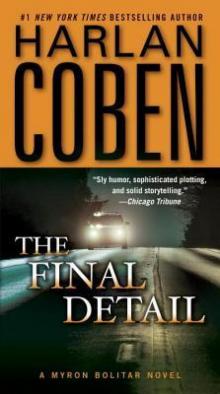 The Final Detail
The Final Detail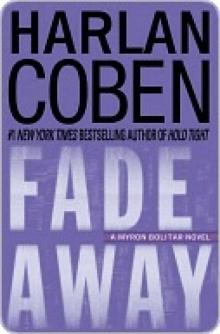 Fade Away
Fade Away Home
Home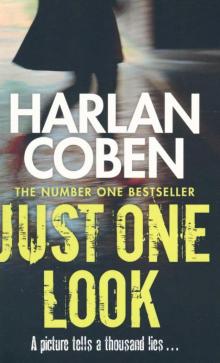 Just One Look
Just One Look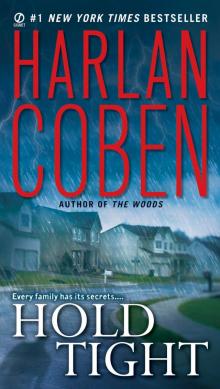 Hold Tight
Hold Tight Fool Me Once
Fool Me Once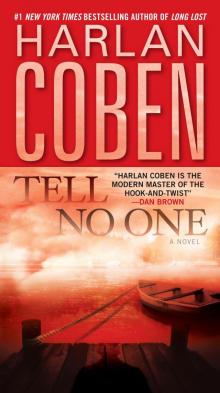 Tell No One
Tell No One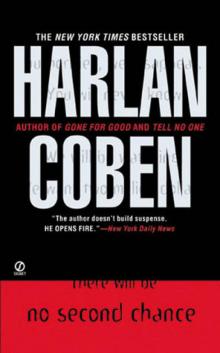 No Second Chance
No Second Chance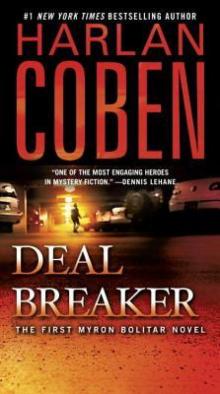 Deal Breaker
Deal Breaker Long Lost
Long Lost One False Move
One False Move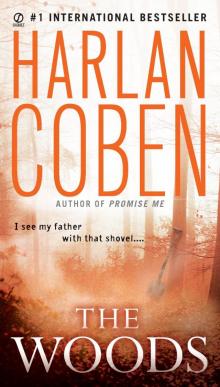 The Woods
The Woods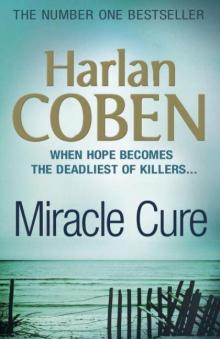 Miracle Cure
Miracle Cure Found
Found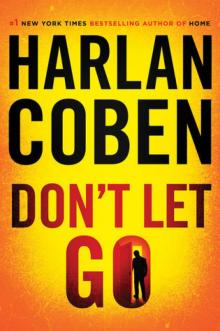 Don't Let Go
Don't Let Go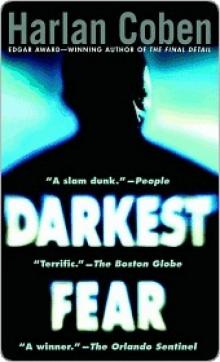 Darkest Fear
Darkest Fear The Stranger
The Stranger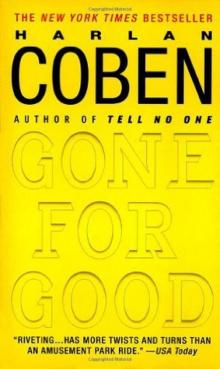 Gone for Good
Gone for Good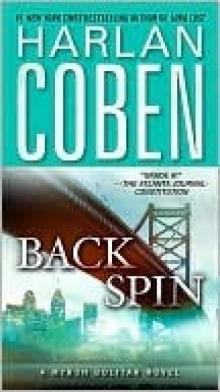 Back Spin
Back Spin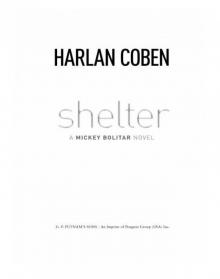 Shelter
Shelter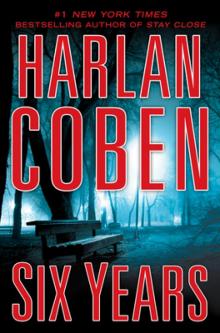 Six Years
Six Years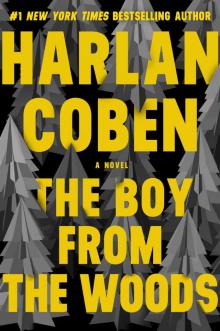 The Boy from the Woods
The Boy from the Woods Missing You
Missing You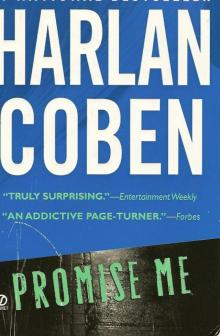 Promise Me mb-8
Promise Me mb-8 The Final Detail: A Myron Bolitar Novel
The Final Detail: A Myron Bolitar Novel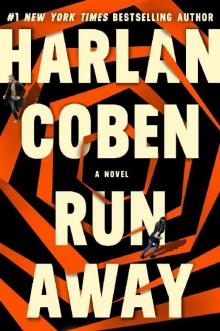 Run Away
Run Away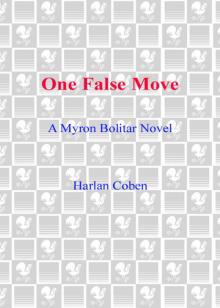 One False Move: A Myron Bolitar Novel
One False Move: A Myron Bolitar Novel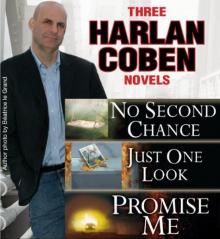 Three Harlan Coben Novels
Three Harlan Coben Novels the Woods (2007)
the Woods (2007) Tell No One (2001)
Tell No One (2001) the Innocent (2005)
the Innocent (2005)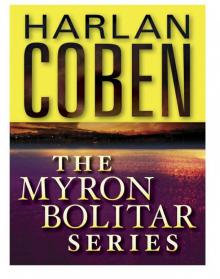 The Myron Bolitar Series 7-Book Bundle
The Myron Bolitar Series 7-Book Bundle Gone for Good (2002)
Gone for Good (2002) Caught (2010)
Caught (2010) Hold Tight (2008)
Hold Tight (2008)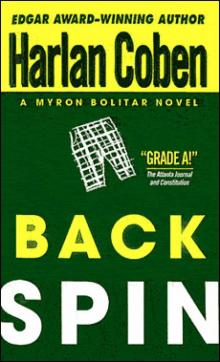 04 - Back Spin
04 - Back Spin Miracle Cure (1991)
Miracle Cure (1991) Harlan Coben 3 Novel Collection
Harlan Coben 3 Novel Collection Just One Look (2004)
Just One Look (2004)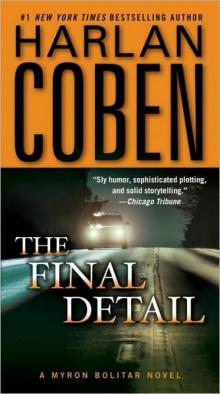 The Final Detail mb-6
The Final Detail mb-6 Play Dead (2010)
Play Dead (2010)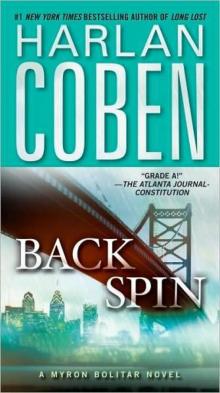 Back Spin mb-4
Back Spin mb-4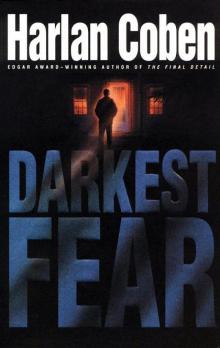 Darkest Fear mb-7
Darkest Fear mb-7